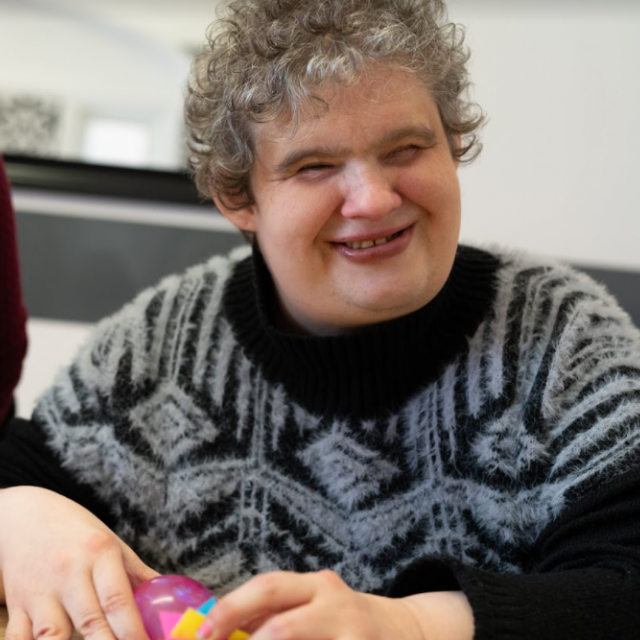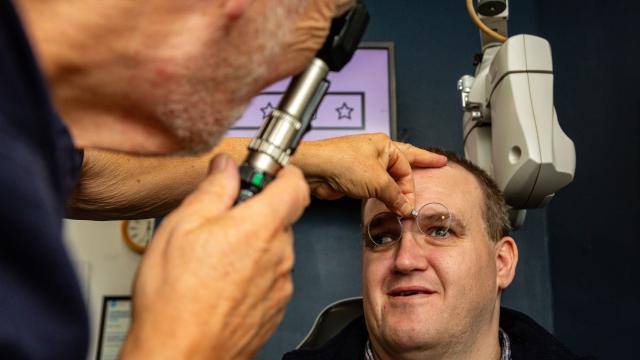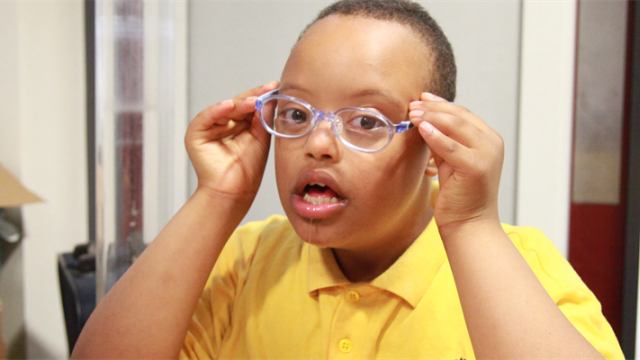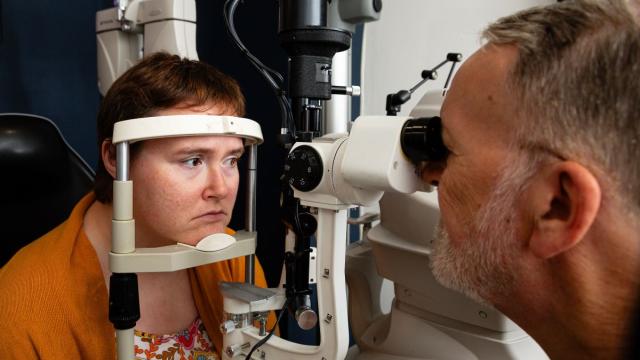Eye health
Adults and children with learning disabilities are far more likely to have a serious sight problem than other people.
Eye care is extremely important for people with learning disabilities. Good eyesight enables us to learn, communicate and feel more confident. It supports personal development and lets us take part in more of what life has to offer.
Having an eye test should be a priority
It’s essential to know how well people can see so they can be supported to make the best use of their vision. An eye test is the only way of keeping track of eye health and vision. Due to the increased likelihood of eye problems, everyone with a learning disability should have an eye test every two years. Some people may need one more often.
Everyone can have an eye test – you don’t need to be able to read or speak
Everyone can and should have an eye test. Some people may need extra support but this does not mean they cannot be tested. There are many ways to plan for a successful eye test:
- Visit the opticians in advance to familiarise with the new environment
- Talk about or look at pictures of the eye test at home before the day of the test
- Plan the best day and time to have an eye test
- Suggest reasonable adjustments to the optometrist to improve the outcomes of the eye test, including using the Bradford Visual Function Box instead of a traditional eye test
- Understand that the tests can be adapted and glasses can be prescribed just from from a specialist instrument called a retinoscope
If you are in any doubt, get it checked. And remember that people with learning disabilities should have regular eye tests at least every 2 years.
Wear the right glasses
6 in 10 people with learning disabilities need to wear glasses. People need the right glasses for the right task and support to get used to wearing them. Glasses should be kept clean and well maintained.
Get the right support
The right support to manage eye conditions and live with sight loss is essential. This could include:
- Access to treatments and eye surgery
- Support to make the best use of someone’s vision
- Specialist equipment and support for people living with sight loss
How to be eye care aware (easy read)
Eye care essentials for people with learning disabilities.
This is an easy read document
Screen use and your eyes (easy read)
This is an easy read document

Sammy's story
When we first met Sammy, we were told she had been blind for over 40 years. But when we started to investigate what she could really see, it changed her life.





